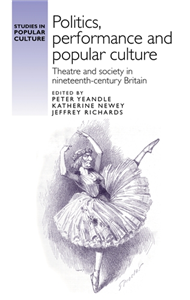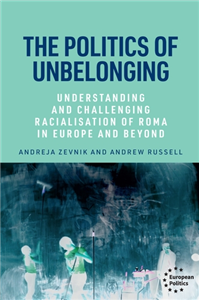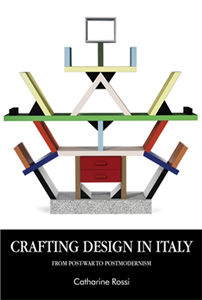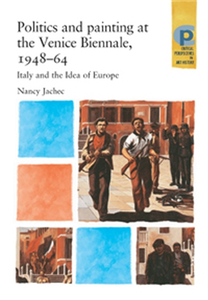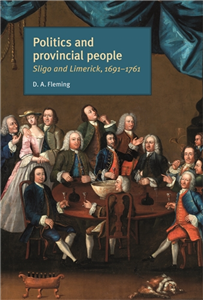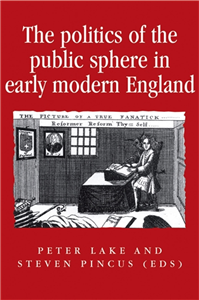Your Search Results
-
Promoted Content2024
My Italy with Berlusconi
And what has become of it. Essays, conversations, reports
by Michaela Namuth
The political era of media entrepreneur and multi-billionaire Silvio Berlusconi began in 1994. German journalist Michaela Namuth also arrived in Rome at that time. He became prime minister, she became a freelance correspondent for various newspapers. She spent the long period of his government with him. During this time, the populist Berlusconi not only paved the way for a far-right government, he was also an ice-breaker for other right-wing populists in Europe and elsewhere. What else happened during and after Berlusconi's time in power is told in 20 chapters of articles, reports and interviews. The result is a colourful mosaic of contemporary Italy. It is about publishing, design, crime fiction, the mafia, a women's factory, the south and Nutella. Under Berlusconi, the country has changed. Many speak of “Berlusconisation”, by which they mean the gradual weakening of democracy. It is a critical book, but also a declaration of love to a contradictory country whose name still has a special ring to many ears.
-
Promoted ContentHumanities & Social SciencesFebruary 2023
Politics, performance and popular culture
Theatre and society in nineteenth-century Britain
by Peter Yeandle, Katherine Newey, Jeffrey Richards
This collection brings together studies of popular performance and politics across the nineteenth century, offering a fresh perspective from an archivally grounded research base. It works with the concept that politics is performative and performance is political. The book is organised into three parts in dialogue regarding specific approaches to popular performance and politics. Part I offers a series of conceptual studies using popular culture as an analytical category for social and political history. Part II explores the ways that performance represents and constructs contemporary ideologies of race, nation and empire. Part III investigates the performance techniques of specific politicians - including Robert Peel, Keir Hardie and Henry Hyndman - and analyses the performative elements of collective movements.
-
 Trusted Partner
Humanities & Social SciencesMay 2025
Trusted Partner
Humanities & Social SciencesMay 2025The politics of Unbelonging
Understanding and challenging racialisation of Roma in Europe and beyond
by Andreja Zevnik, Andrew Russell
This book offers a comprehensive study of racialisation of Romani communities in Europe (and beyond). Drawing on the idea of unbelonging it demonstrates how Romani communities are placed in a position of visceral visibility by local, national and international institutions as well as public media discourses. It shows how such positionality impacts the ability of Roma to self-represent politically and build capacity for change. From the position of unbelonging the book offers an account of Romani agency which both challenges the mainstream representations of Roma but also develops an alternative none-nation-state sense of belonging. In doing so the book outlines an account of Romani alternative expressions in order to take control of their relationship with their own history, future, knowledge, and identity, and the rest of the society.
-
 Trusted Partner
Humanities & Social SciencesMay 2003
Trusted Partner
Humanities & Social SciencesMay 2003European politics today
Second edition
by Patricia Hogwood, Bill Jones, Geoffrey Roberts
Provides a comprehensive introduction to the political system and processes of western Europe. Demonstrates clearly that political decisions are made in the context of specific historical developments, geographical constraints and social demands. Fully updated to take account of the recent French, British and Italian general elections as well as the momentous changes that have taken place in global politics as a result of the September 11 terrorist attacks, and the preparations for EU enlargement. Chapters on the European Union and democracy in western Europe have been substantially revised to take account of globalisation and recent political corruption issues. ;
-
 Trusted Partner
Literature & Literary StudiesJanuary 2013
Trusted Partner
Literature & Literary StudiesJanuary 2013The towns of Italy in the later Middle Ages
by Trevor Dean
The towns of Italy in the later middle ages presents over one hundred fascinating documents, carefully selected and coordinated from the richest, most innovative and most documented society of the European Middle Ages. No other English language sourcebook has the same geographical or chronological range. This collection is carefully structured around the crisis of the fourteenth century and arranged in contrasting groups of texts. By connecting documents in translation to recent scholarship and debates, it addresses five key areas of medieval urban history: the physical environment, civic religion, economy, society and politics. Offers students well-translated and effectively contextualised documents along with some guidance to the secondary work of Italian scholars which is largely inaccessible to undergraduate students.
-
 Trusted Partner
Humanities & Social SciencesAugust 2010
Trusted Partner
Humanities & Social SciencesAugust 2010Dictionary of British Politics
Second edition
by Bill Jones, Bill Jones
From Diane Abbott to Hugo Young via Keynesianism and Thatcherism, from Major to Millbank and from New Labour to Norman Tebbitt, this book is the ultimate student reference guide to British politics. The 2nd edition has been fully updated to take account of all the changes that have taken place in British politics since 2004. With over one thousand entries, the book covers the personalities, policies and institutions that have shaped British politics, with special emphasis on developments since the beginning of the twentieth century. This is the ideal instant reference book on British politics. It provides the reader with short, authoritative explanations and definitions of key terms, institutions, offices of state, political events, processes and policies as well as biographies of well known politicians, political thinkers, movements and theorists. Any student unsure of a term, an event, the details of the life of a prominent politician, or the inner workings of an institution can turn to this book for immediate assistance. ;
-
 Trusted Partner
Humanities & Social SciencesFebruary 2017
Trusted Partner
Humanities & Social SciencesFebruary 2017Conflict, Politics and Proselytism
Methodist missionaries in colonial and postcolonial Burma, 1887–1966
by Andrew Thompson, Michael D. Leigh, John M. MacKenzie
This book is a study of the ambitions, activities and achievements of Methodist missionaries in northern Burma from 1887-1966 and the expulsion of the last missionaries by Ne Win. The story is told through painstaking original research in archives which contain thousands of hitherto unpublished documents and eyewitness accounts meticulously recorded by the Methodist missionaries. This accessible study constitutes a significant contribution to a very little-known area of missionary history. Leigh pulls together the themes of conflict, politics and proselytisation in to a fascinating study of great breadth. The historical nuances of the relationship between religion and governance in Burma are traced in an accessible style. This book will appeal to those teaching or studying colonial and postcolonial history, Burmese politics, and the history of missionary work.
-
 Trusted Partner
Trusted Partner
-
 Trusted Partner
Trusted Partner
-
 Trusted Partner
The ArtsFebruary 2015
Trusted Partner
The ArtsFebruary 2015Crafting design in Italy
From post-war to postmodernism
by Catharine Rossi, Christopher Breward, Bill Sherman
Crafting design in Italy is the first book to examine the role that craft played in post-war Italian design, one of the most celebrated design episodes in the twentieth century. Craft was vital to the development of Italian design, and it has been so far overlooked. This book examines the multiple ways craft shaped Italian design from 1945 to the 1980s in the context of bigger socio-economic, cultural and political change; from post-war reconstruction to the economic 'miracle' of the 1960s, to the rise of the countercultural Radical Design movement and advent of postmodernism. It consists of case studies on design areas including product, furniture, fashion, glass and ceramics to bring to light previously unknown makers and objects as well as re-examine design 'icons' such as Gio Ponti's Superleggera chair and Ettore Sottsass's Memphisware. It also offers a model for analysing design and craft's relationship in other contexts, including today. ;
-
 Trusted Partner
Trusted Partner
-
 Trusted Partner
Humanities & Social SciencesAugust 2023
Trusted Partner
Humanities & Social SciencesAugust 2023The bad German and the good Italian
by Paul Barnaby, Filippo Focardi
-
 Trusted Partner
The ArtsSeptember 2007
Trusted Partner
The ArtsSeptember 2007Politics and painting at the Venice Biennale, 1948–64
Italy and the Idea of Europe
by Nancy Jachec, Marsha Meskimmon, Shearer West, Tim Barringer
Although cultural exchanges were named within the Council of Europe in the mid- 1950s as being second only in importance to the military as a tool for ensuring a stable and integrated Western Europe in the aftermath of the Second World War, European-led initiatives have generally been overlooked in the historiography of art of the immediate post-war period. Popularly remembered as the era of the United States' cultural 'triumph', American Abstract Expressionism in particular is commonly identified as the cultural 'weapon' by which that nation conquered Western European culture. Using the Venice Biennale as a case study, this book challenges the idea that there was an American cultural conquest in the 1950s through the fine arts, arguing instead that Western Europe retained a strong sense of world cultural leadership in the immediate post-war years. An institutional history that combines political and diplomatic with art history, and is informed by extensive archival research, it argues that Italian political and cultural figures actively promoted the 'Idea of Europe' - the Council of Europe's cultural initiative of 1955 designed to promote the idea of a homogeneous post-war European culture - at the Biennale in the form of gesture painting as an international style, as the emblem of a culturally united Western Europe, and as the repository of universal humanist values for the international community. Scholarly but accessible, this book will be of interest not only to researchers and to students of international cultural relations during the Cold War, but to general, interested readers, too. ;
-
 Trusted Partner
Literature & Literary StudiesNovember 1997
Trusted Partner
Literature & Literary StudiesNovember 1997The Italian Resistance
An anthology
by Philip Cooke
Anthology of key extracts, in Italian - both literary and non-literary.. Introduction and notes in English.. Contains material which would mesh well with various standard set texts, such as Pavese, Bittorini, Calvino, Viganò.. A unique selection - no competing Italian edition. ;
-
 Trusted Partner
Humanities & Social SciencesJuly 2010
Trusted Partner
Humanities & Social SciencesJuly 2010Politics and provincial people
Sligo and Limerick, 1691–1761
by D. A. Fleming
This ground-breaking study is the first to systematically examine the politics and political culture of provincial Ireland. The book compares two distinct localities that provide differing perspectives on how politics and power manifested itself in provincial Ireland: Sligo in the north west and Limerick in the south west. Drawing on a wealth of previously unknown and under-utilised contemporary material, David Fleming focuses on individuals who were determined to shape the political landscape and those who were affected by their actions. The book challenges many accepted models of how Ireland and the Irish were governed. While the propertied élite dominated many aspects of the political process, individuals and groups from the professional, mercantile, rural and other sections of society - the 'middling orders' - were also active in local institutions and office-holding. Their story, recounted here, reveals a far more complex set of relationships. Politics and provincial people is a carefully constructed story of people's motivations, ideas, and actions, and offers new insights into the complexity of their lives and the Irish political landscape. ;
-
 Trusted Partner
Humanities & Social SciencesJune 2024
Trusted Partner
Humanities & Social SciencesJune 2024Peace and the politics of memory
by Annika Björkdahl, Susanne Buckley-Zistel, Stefanie Kappler, Johanna Mannergren Selimovic, Timothy Williams
This important book provides new understandings of how the politics of memory impacts peace in societies transitioning from a violent past. It does so by developing a theoretical approach focusing on the intersection of sites, agency, narratives, and events in memory-making. Drawing on rich empirical studies of mnemonic formations in Cyprus, Bosnia and Herzegovina, Rwanda, South Africa and Cambodia, the book speaks to a broad audience. The in-depth, cross-case analysis shows that inclusivity, pluralism, and dignity in memory politics are key to the construction of a just peace. The book contributes crucial and timely knowledge about societies that grapple with the painful legacies of the past and advances the study of memory and peace.
-
 Trusted Partner
Literature & Literary StudiesJune 2026
Trusted Partner
Literature & Literary StudiesJune 2026The politics of Middle English parables
Fiction, theology, and social practice
by Mary Raschko
The politics of Middle English parables examines the dynamic intersection of fiction, theology and social practice in late-medieval England. Parables occupy a prominent place in Middle English literature, appearing in dream visions and story collections as well as in lives of Christ and devotional treatises. While most scholarship approaches the translated stories as stable vehicles of Christian teaching, this book highlights the many variations and points of conflict across Middle English renditions of the same story. In parables related to labour, social inequality, charity and penance, the book locates a creative theological discourse through which writers attempted to re-construct Christian belief and practice. Analysis of these diverse retellings reveals not what a given parable meant in a definitive sense but rather how Middle English parables inscribe the ideologies, power structures and cultural debates of late-medieval Christianity.
-
 Trusted Partner
Humanities & Social SciencesApril 2026
Trusted Partner
Humanities & Social SciencesApril 2026Elites in civil society
A comparative perspective
by Niklas Altermark, Malin Arvidson, Jayeon Lee, Roberto Scaramuzzino
Where civil society is often seen as a driving force for equality, this book addresses a challenging topic: civil society elites. Drawing on a comprehensive study of Italy, Poland, Sweden, and the UK, this ground-breaking research investigates the often-overlooked power structures within civil society. By combining elite studies with civil society research, the book uncovers how a distinct civil society elite emerges and how it interacts with leaders in politics and business. The findings reveal a fascinating paradox. While this elite may be a powerful engine for social change, its integration into wider power circles risks reproducing the very inequalities it seeks to dismantle. By exploring how this elite can become disconnected from its grassroots, the book provides essential insights into the future of civil society and its democratic promise.
-
 Trusted Partner
Humanities & Social SciencesJuly 2012
Trusted Partner
Humanities & Social SciencesJuly 2012The politics of the public sphere in early modern England
Public Persons and Popular Spirits
by Peter Lake, Peter Lake, Steve Pincus, Anthony Milton, Jason Peacey, Alexandra Gajda
This book uses the notion of the public sphere to produce a new view of the history of England in the post reformation period, tracing its themes from the 1530s to the early eighteenth century. The contributors, who are all leaders in their own fields, bring a diverse range of approaches to bear on the central theme. The book aims to put the results of some of the most innovative and exciting work in the field before the reader in accessible form. Each chapter stands alone in representing an important contribution to its own area of study and sub-period as well as to the overall argument of the book. Politics, culture and religion all feature prominently in the resulting analysis, which should be of interest to students and academics of early modern English history and literature. ;
-
 Trusted Partner
Teaching, Language & ReferenceJuly 2015
Trusted Partner
Teaching, Language & ReferenceJuly 2015Politics and peace in Northern Ireland
Political parties and the implementation of the 1998 Agreement
by David Mitchell
Politics and peace in Northern Ireland analyses the complex and contradictory process of implementing the Good Friday Agreement. Using the lens of security dilemma theory, it begins with an original overview of the conflict, the Agreement and post-1998 politics. The book then explores post-Agreement Northern Ireland through the eyes of each of the four main political parties, showing how they tried to shape the course of peace implementation, and how implementation, in turn, shaped the fates and fortunes of the parties. Drawing on extensive original research, this book explains the promise and limits of the Agreement. It shows how and why the two sides' mutual insecurities repeatedly derailed peace implementation, and reflects on the likely direction of parties and politics in the future. This clearly written and up-to-date book will be of interest to scholars and students of recent Northern Irish history, ethnic conflict and peace-making. ;






